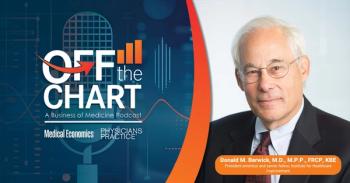
Needless Conflict Between Physicians and PAs
Medicine is now a team sport which has many moving parts and requires a highly specialized staff. PAs are not the enemy. We are the solution.
I was recently perusing social media related to physician assistants (PAs), and I came across a blog by a PA on a physician website. This PA was writing about the increasing conflict among physicians, PAs, and nurse practitioners (NPs) in a variety of environments. The PA did what I thought was a good job of explaining his role in team medicine, and recognizing the obvious limitations of his scope of practice and training. He also observed what I too have observed over 35 years of practice: It is pretty hard to distinguish between the work of appropriately educated and experienced providers in the clinical environment.
That is where the conflict began. There was a lot of back and forth between the physicians, the NPs, and PAs on this subject. On the physician side, there was a lot of concern focused on the perceived superior medical training of a physician. There was also angst regarding the "corporatization" of medicine and how the bureaucracy of medicine has reduced physicians and all the providers in the healthcare system to little cogs in a big wheel. Control of the healthcare system has been transitioned away from physicians and shifted to facilities and healthcare systems in a move toward models that focus on value, not fee-for-service. Physicians have become employees of the system, and are less in control of their own destiny and environment. This is how all providers of healthcare services feel - welcome to modern medicine in 2016!
From my own experience, I spend a lot of time in the surgery lounge conversing with physicians about all of these things. There is a lot of dissatisfaction and doubt about life choices, and there is a rising anger among physicians and others about the lack of control and the ever-expanding administrative burden of modern medicine, especially in an inpatient environment.
This anger and frustration sometimes get targeted at other groups in the system, such as PAs, NPs, and certified registered nurse anesthetists (CRNAs). I've heard this sentiment expressed by physicians more than once: "A physician is always better than a PA."
It is my experience that it is normal to hear physicians talk like this. My response to this perception is to give the physicians (pick any specialty outside of burns, plastics, and reconstruction) a little education that they can't refute. I agree with them that their training is lengthier from a didactic and residency standpoint. I then point out that I have been working in a busy, inpatient plastic and reconstructive surgery setting for over seven years, caring for critically ill burn patients, and performing over 700 cases per year with my surgeon business partner. I ask them who would they rather have at the bed side, or table side, when their loved ones are being cared for by our team - a generalist physician or a trained reconstructive surgery PA? The answer is always the same, and they get my point. When PAs are able to practice at the top of their experience and education, patients will benefit.
After 35 years of practice, I have gotten the training and experience on the job that have helped me be an excellent provider in my environment, with many specialized skills other providers who do not practice in my environment might not have. The same is true physician-to-physician. We all need to work together, and respect each other's skills, abilities, education, and experience. I'm respected in my environment, but as providers, we must do better to bridge this gulf between PAs and physicians because we all have an important job at hand - caring for our patients.
The fact of the matter is that medicine is now a team sport, and that team has many moving parts and people. All of these parts contribute to the whole and improve patient care. I speak from experience in a surgery environment - PAs are the perfect fit on surgical teams. From rounding, pre- and post-op care, first assisting, admission and discharge, and consults, PAs dramatically improve the quality of life of the healthcare team, improve access to care for patients, and, along with NPs, CRNAs, and physicians, be at the forefront of this new system of healthcare delivery designed to improve our system overall.
We are not the enemy. We are the solution.
Newsletter
Optimize your practice with the Physicians Practice newsletter, offering management pearls, leadership tips, and business strategies tailored for practice administrators and physicians of any specialty.






